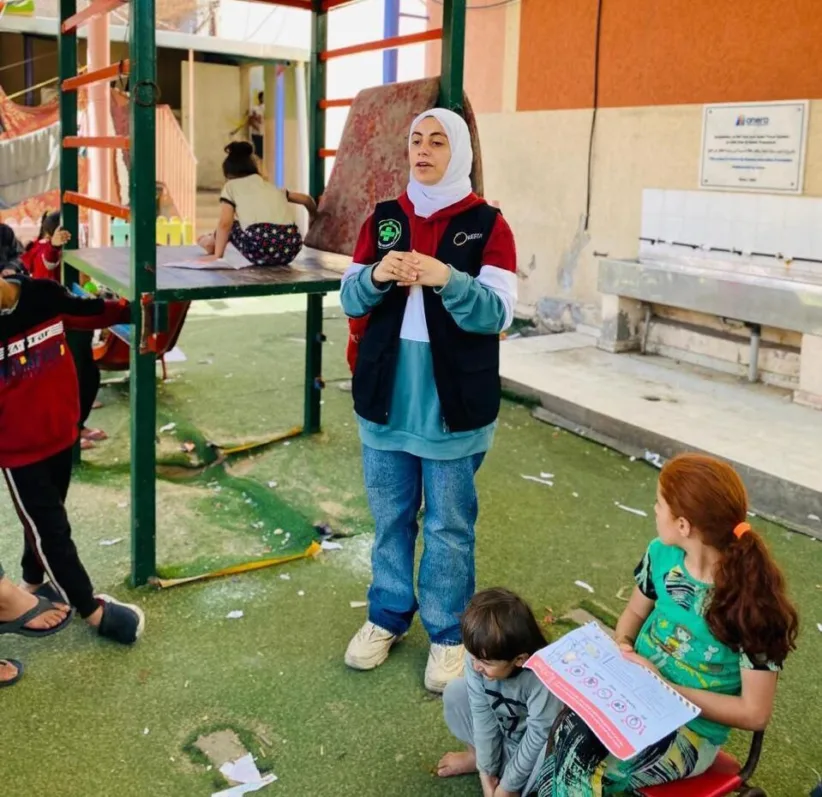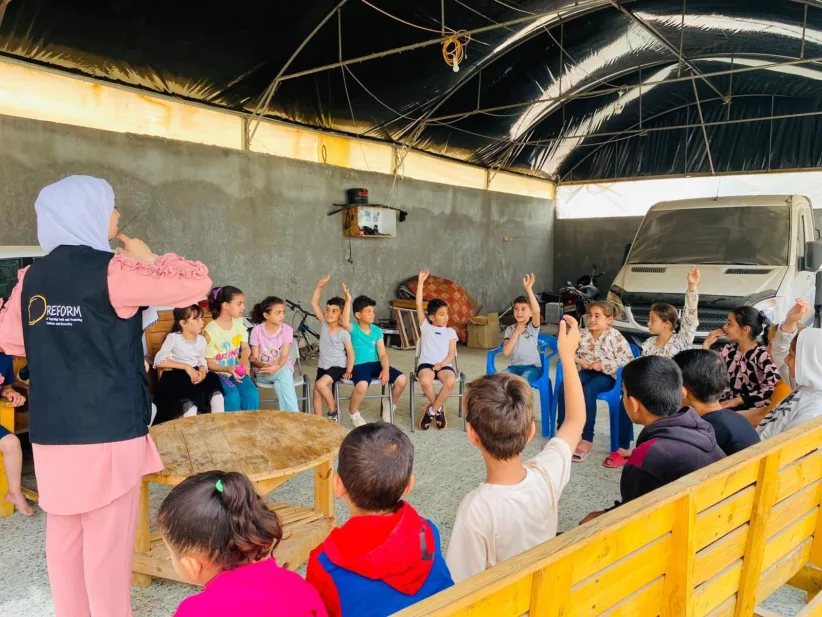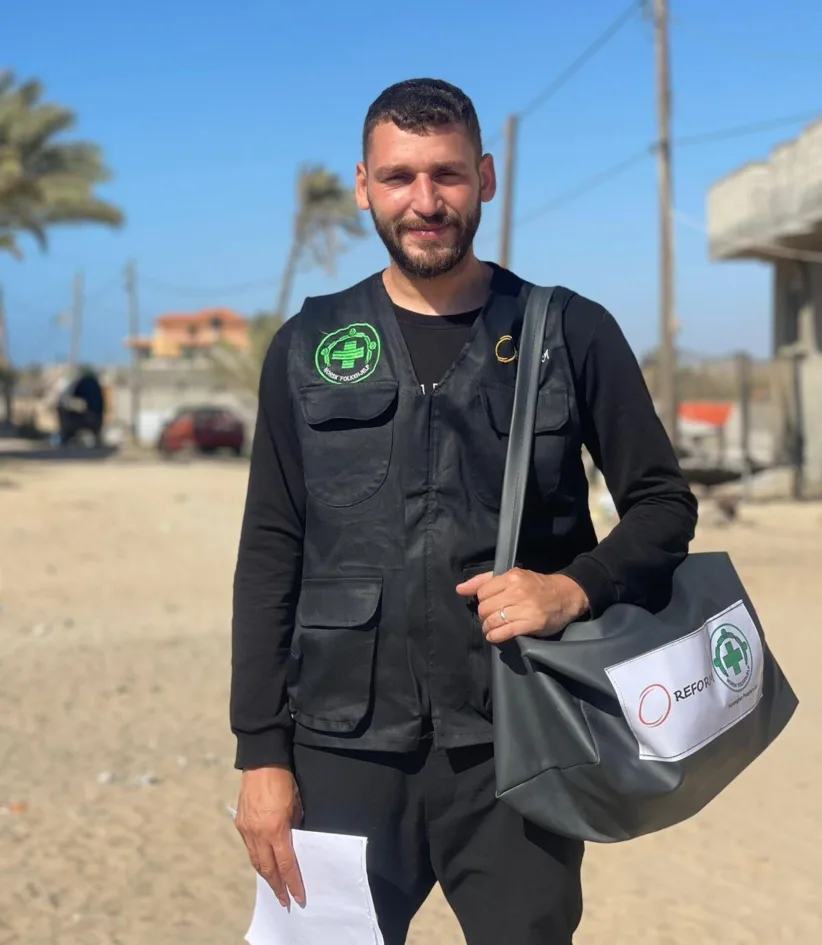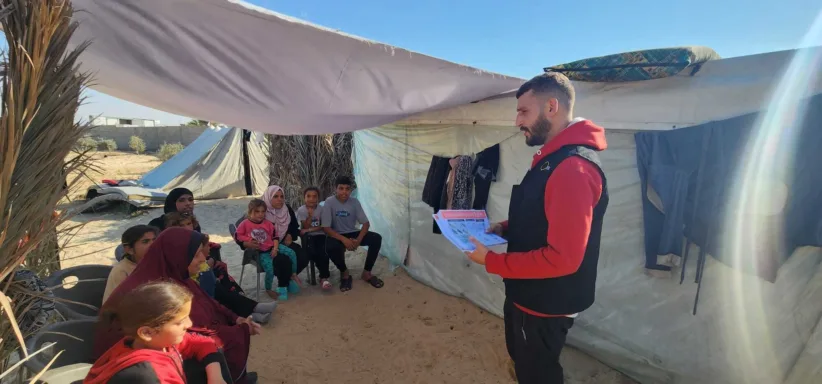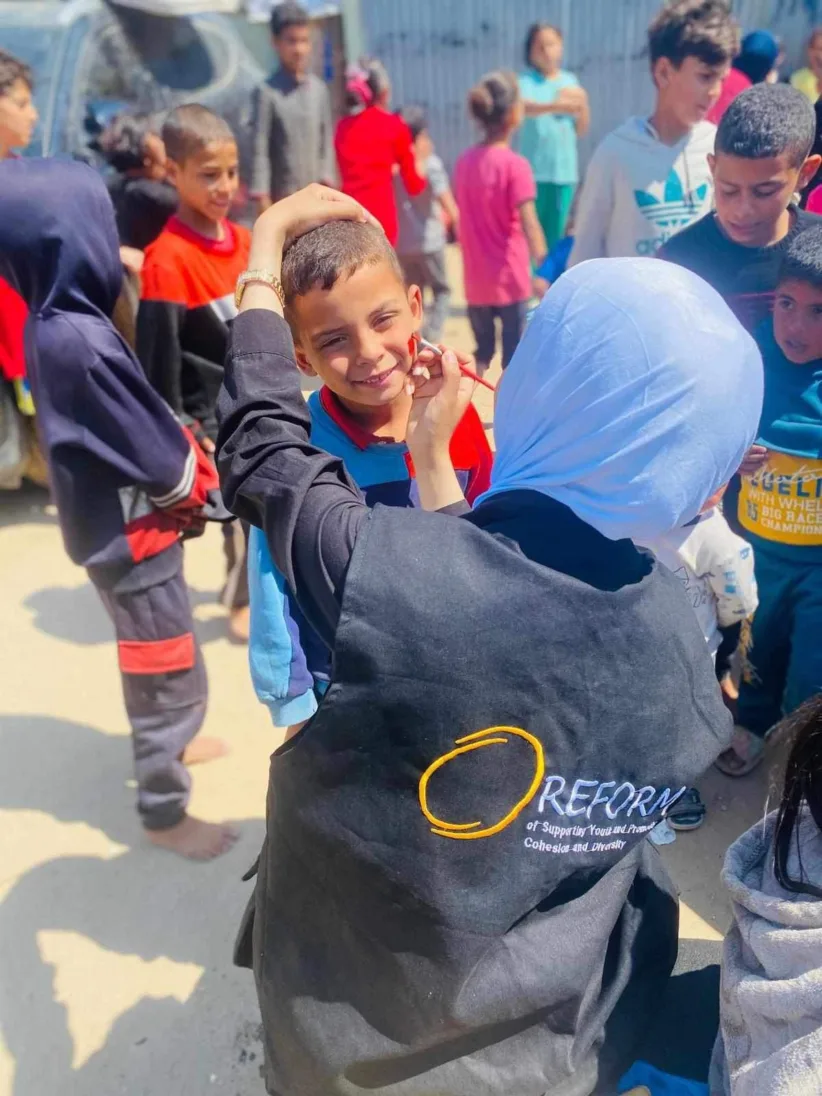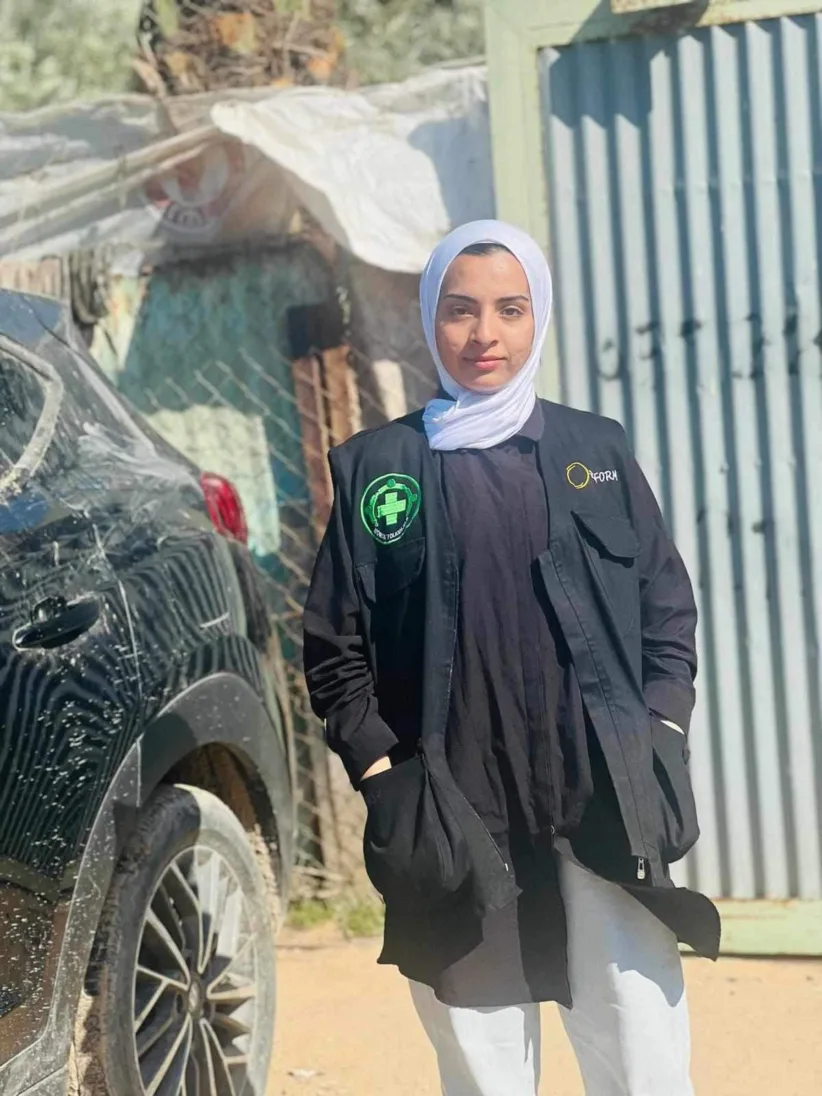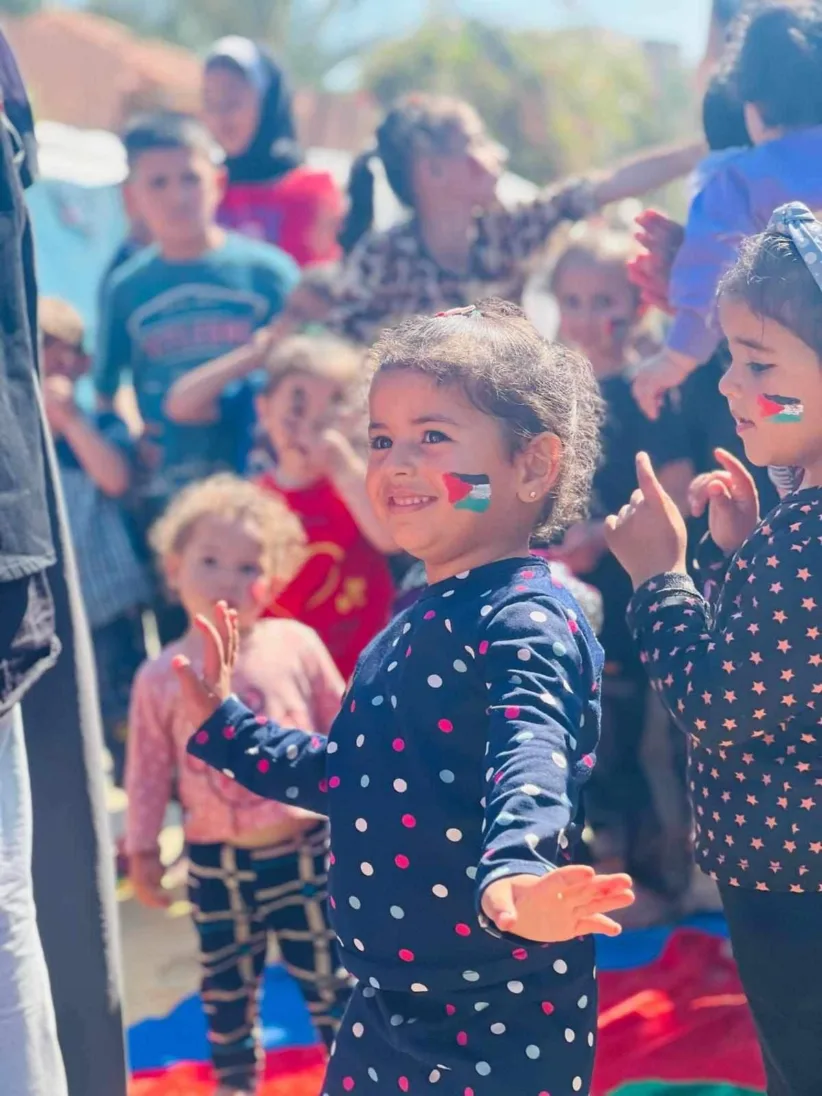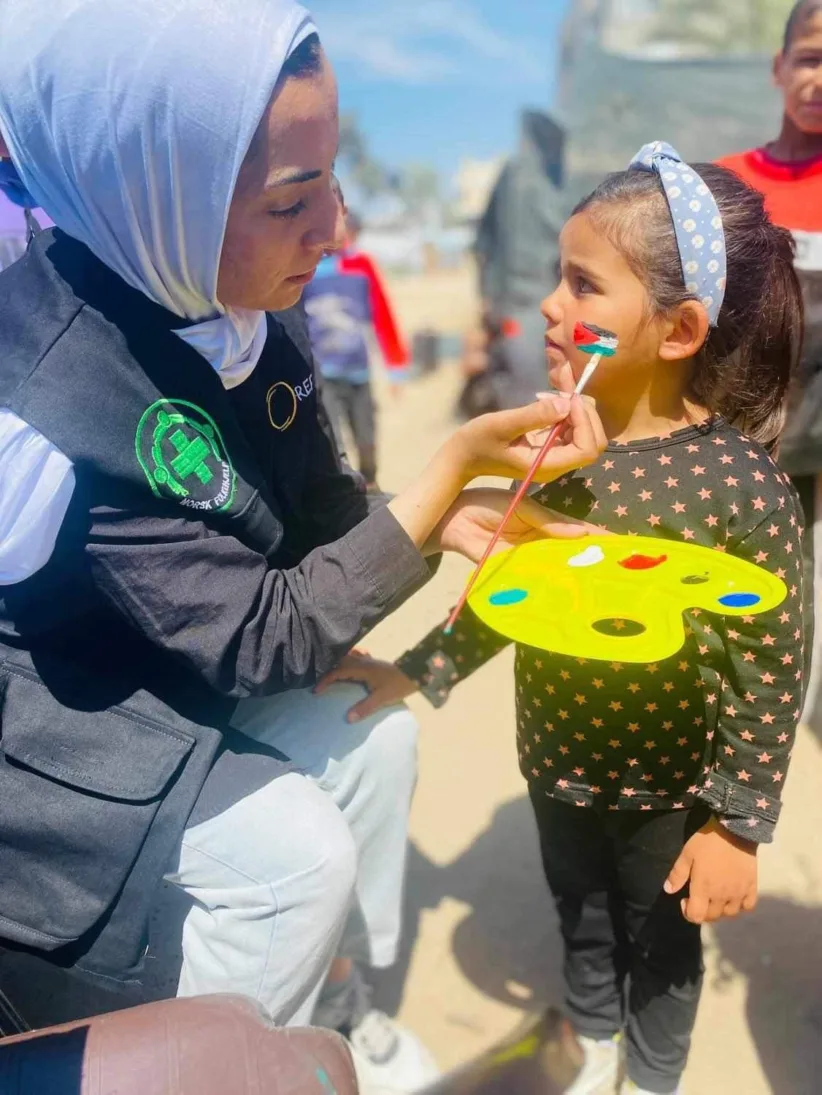REFORM in times of crisis
What do you do when the war puts restrictions on how you do your job? For project coordinator Esra Obaid in REFORM, with an office in the West Bank, she and her colleagues had to think in new ways. The answer was training volunteers who in turn teach other volunteers how to protect themselves from explosives - both when they rain down around you, but also what to do when you find them undetonated on the ground. Other volunteers learn about, and away, how to take care of your psyche when you experience bombs falling around you when you go to sleep, but also how to process all the inhuman impressions a war leaves in your mind.
Creative solutions
REFORM is a Palestinian organization and partner of Norwegian People's Aid. They usually work for inclusion and cohesion in society, and to empower the local population to take part in political processes and help shape decisions that affect society.
When the war broke out, most of the organization had to change the way they worked to support Palestinians affected by the ongoing aggression on Gaza, but also on the West Bank. For communications officer Hala Morrar, it was about creating content for social media that informs about the situation daily. But as the days passed and more volunteers were trained, it also became important to document their work.
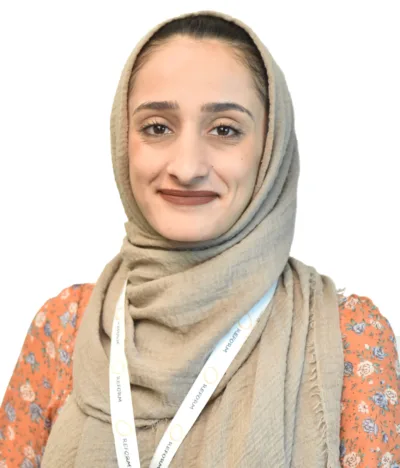
It's amazing how they manage to take the nicest pictures I've seen and make creative and good short videos with music, while at the same time being in the middle of the worst crisis they've ever experienced, says Morrar.
In addition to social media, REFORM's volunteers have actively taken to the streets in campaigns to make Palestinians aware of what they must do if they are harassed by settlers in the West Bank. A creative move they took was to hand out air fresheners that hang from the mirror in the car with tips on what to do if you are exposed to an aggressive settler.
Protecting the body and building self-esteem
It's hard to imagine that it's possible to take preventive measures to protect yourself when the bombs are falling around you, but it's possible – and it can save lives. For the volunteers, it also gives meaning to the meaningless.
"It was a transformative experience for me, which started with the training sessions that were conducted via Zoom. Despite the many challenges we face in Gaza, I was determined to participate and take full advantage of this opportunity."
So says Mai Afifa, who despite extreme conditions managed to complete the training, but not without obstacles. She spent several hours in internet cafes attending the courses and when the internet was down or the power went out, she made sure to make up for lost time by looking at the recordings of the courses posted in the WhatsApp group. Through the training, she got the feeling of being able to do something and be an important part of a society that desperately needs information about how to protect itself in war.
Her first assignment was in a refugee camp for internally displaced people and her most memorable experience was when she had training for children between the ages of 6 and 10. She was worried about whether the children would understand and not get bored, but to her great joy, the children took the information lightly and asked many questions.
For another volunteer, Jameel Obaid, the knowledge of how to protect himself helped him and his family when they had to flee themselves. When he was being trained in Khan Younis, the escalating bombing became a threat and they had to get to safety in a short time. But they were prepared. They had packed an evacuation bag, they had a plan, information about identifying the children had been written down and all-important documents had been digitized.
"When the time came to evacuate, everyone knew what to do. The calmness and efficiency of each family member was remarkable. These preparations and training made a big difference. We were able to leave the area of danger without fault or regret, unlike previous times when we had to evacuate."
Psychosocial support in times of crisis
The time after 7 October has led to many working hours for the project coordinator Obaid. All volunteer activity must be documented, but there is nothing else she would like to do now. Because it's important not to just teach how to protect your body when war is close to you. It is also about caring for the psychosocial in the individual and the local community.
Through exercises such as live action role-playing for adults and theatre for children, REFORM gives people a space to reflect on the fear they have experienced and give a voice to the emotions that create a jumble of unrest in the body.
"We also provide training in breathing techniques to calm the heartbeat and Yoga classes to try to create a balance between body and mind," says Morrar.
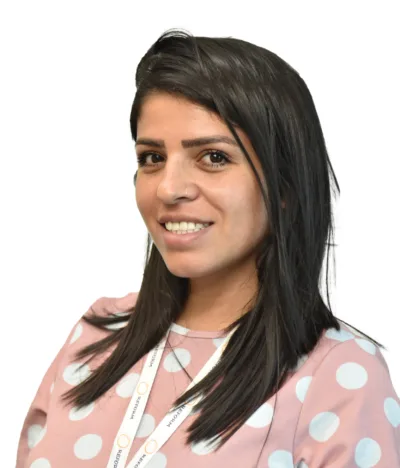
But what has perhaps surprised me the most is that when we have role-playing games with men, the men often choose the female role to express the feelings they have, Obaid adds.
Men experience harassment to a greater extent than women and children, while at the same time living in a male-dominated society where men are not allowed to express their feelings. This can lead to a pressure cooker of repressed anger that can affect you and your family. These exercises help give men a chance to understand what they are experiencing and how best to deal with the consequences.
For the children, it is also invaluable to be able to meet people who see them and have the tools to get them out of the hard shell they have created for themselves. This happened to psychosocial trainer Bayan Hazem Musleh from Gaza when she was contacted by a woman who was worried about her son. He was deeply affected by the war, did not want to have contact with other children and had withdrawn from all socialization.
Musleh accepted the challenge and was determined to help the little boy. It wasn't easy to get through the shell, but after trying several methods, she finally saw a boy who started smiling and being with other children.
"One of the most heartwarming moments was when I visited him at his new residence. Witnessing his progress up close and seeing the joy on his face confirmed that my efforts were making a difference. It was a moment of deep fulfillment to know that I had helped transform his life."
Affected by the war
In the West Bank, violence from settlers has increased considerably, and more and more Palestinians are experiencing being driven from their homes. Even before the war, there were many checkpoints that limited the Palestinians' ability to move freely, but after 7th October they have set up many more posts, says Hala Morrar. They are also not open all the time and are not notified when, but then you risk standing in line for a long time. They are also often suddenly closed without warning.
For both the project coordinator and the communications officer, the war has affected them mentally.
"There came a time when I could no longer watch the news. I felt mentally drained, and I had to protect myself. When I'm at home now, I would rather focus on being present with my two children", says Esra Obaid.
It's easy to feel discouraged when you see so many terrible things on the news and in social media, but both women have a strong feeling that they are doing something important through the job they have in REFORM. They are also enormously grateful for the support they experience from the Norwegian people and especially the recognition of Palestine as a state.
When I see people demonstrating in the streets of European cities, I feel warmth in the chest and happiness. It is so important to feel the solidarity support from the international community and know that we are not forgotten, says Morrar.
Nevertheless, there is a long way to go before a peaceful solution is in place, and both believe it is important that important social actors put pressure on the Israeli state and show that the murder and harassment of civilians are not accepted.
